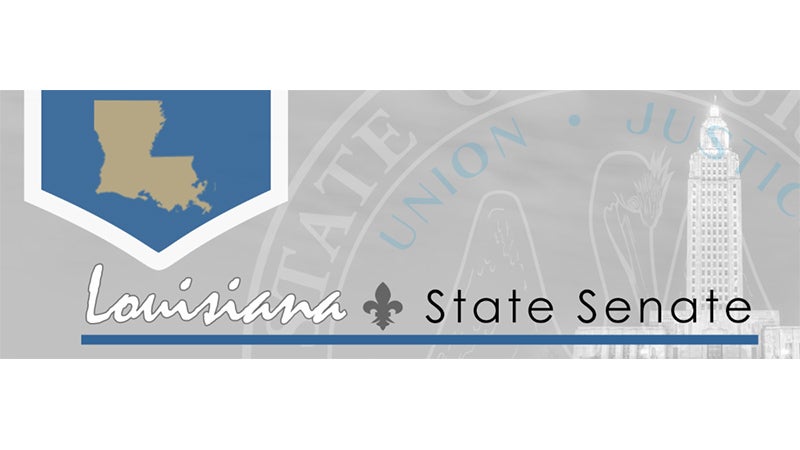Pres. Cortez Welcomes Former Senate President Randy Ewing to Finance Committee to Share History of the Expenditure Limit
Published 11:21 am Friday, April 28, 2023
|
Getting your Trinity Audio player ready...
|
BATON ROUGE, La. – Senate President Page Cortez welcomed former Senate President Randy Ewing to the Senate Finance Committee this week to share some history on the expenditure limit with the members ahead of introducing Senate Concurrent Resolution 3 (SCR 3) which directs the Commissioner of Administration to adjust that limit. Ewing authored the creation of the expenditure limit more than 30 years ago.
Reading from the Public Affairs Research Council’s “Guide to the Constitutional Amendments” from 1990, Cortez told committee members the importance of understanding how and why the cap language was contemplated by legislators and eventually adopted by a vote of the people.
The PAR guide described the problem at hand explaining the constitution didn’t limit state spending/growth and allowed a governor to propose an unbalanced budget, including tax proposals not yet approved, forcing the legislature to adopt them or risk adopting an unbalanced budget.
Today, it’s a different environment compared to when the expenditure limit was enacted. Back then, Louisiana had enormous economic setbacks, including a $500 million deficit and no funds set aside to deal with these declines. Additionally, the body had no mechanism to prevent one-time mineral revenues from being used for recurring expenses in the budget. In response, Ewing and his allies authored a constitutional amendment that accomplished three things:
- Created an expenditure limit, based on a three-year average of fiscal revenues, that could only be exceeded by a 2/3 vote of both the House and Senate;
- Required the Governor’s budget be balanced and based on existing revenue sources, and not a future tax; and
- Established a Rainy Day Fund.
“Unlike then, today we have billions of dollars in two savings accounts (Rainy Day & Revenue Stabilization Funds), as well as hundreds of millions of dollars from previous years sitting in the treasury that are dedicated specifically to deferred maintenance at colleges and universities ($500M) or can be used for coastal restoration projects,” said Cortez. “The Rainy Day Fund has roughly a billion dollars in it. THAT’S CASH IN THE BANK. The Revenue Stabilization Fund has a billion dollars in it. THAT’S CASH IN THE BANK that can be used in future fiscal years for budget shortfalls.”
“The Mega Project Funds have $600-700 million CASH IN THE BANK for priority transportation projects,” Cortez shared. “But failure to raise the expenditure limit jeopardizes critical use of this excess and surplus funding – something the author of this constitutional amendment hardly could have imagined.”
“We never envisioned money like you have today. The basic concept was if you don’t have money, don’t spend it. BUT YOU’VE GOT THE MONEY AND YOU SHOULD SPEND IT on one-time investments that fix lingering infrastructure issues and needs. That’s what I believe the taxpayers would want you to do,” Ewing urged.
“Our state has a lot of needs, your districts have a lot of needs and this is a wonderful time in history to do some good things with the money you do have,” Ewing said.
Cortez also reminded the committee that the definition of appropriation is simple. It’s the authority to spend money.
He shared that there are two types of appropriations:
- The authority to spend money you don’t yet have, and
- The authority to spend money you already have in the bank.
“We were trying to handle the budget, stabilize the budget and set a pattern in place for the future,” said Ewing. “If you move the expenditure limit you give yourself a lot more flexibility to do the things that are needed.”
“We have a thriving economy today,” Cortez asserted. “It’s going to eventually come back down and that’s why there’s so many of us that are overprotective about increasing recurring costs in the operating budget, but it’s also the reason we ought to be firm in our business principles.”
The Senate Finance committee voted to advance Senate Concurrent Resolution 3 favorably. President Cortez told members it would likely sit on the calendar until the Revenue Estimating Committee meets in May and final dollar figures can be amended into the resolution. The Senate will also be awaiting approval of multiple fiscal instruments adopted by the House before considering the budget.





